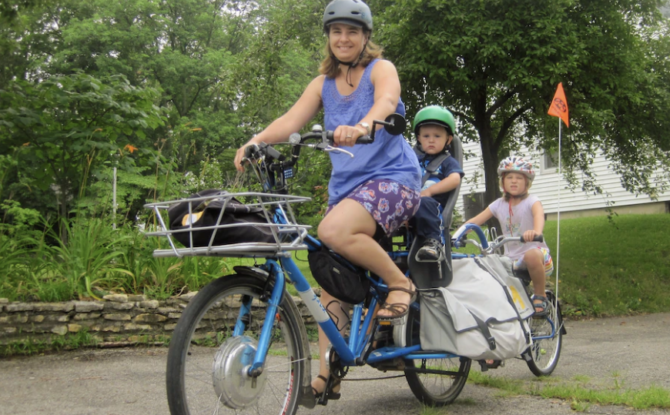
The 15 Best Arguments for Bike Boosters: Part Three
From StreetsBlog.org
By Kiran Herbert and Martina Haggerty
People for Bikes recently developed a a 15-point fact sheet to help counteract misconceptions that often arise when advocating for change, as well as to promote strategies we know work. Here’s the third installment.
11. E-bike subsidies work
While the federal government currently offers a federal tax credit for electric cars of up to $7,500, nothing similar exists for people buying an electric bike. With a lack of federal initiative, more and more states, counties, and cities across the country are taking matters into their own hands, creating e-bike incentive programs that are as varied in substance as they are geographically. While many programs are relatively new, the data is compelling.
Launched in the spring of 2022, Denver’s incredibly popular e-bike incentive program has led to some notable results, including $1 million in cumulative annual savings for the city. Researchers also calculated that the program avoided considerable amounts of greenhouse gas emissions, with some 71 percent of survey respondents claiming to use their gas-powered vehicles less often (those surveyed rode their e-bikes an average of 26 miles per week, replacing 3.4 round trip vehicle trips). Importantly, 29 percent of Denver e-bike redeemers who completed the program survey indicated they were also new to riding.
12. Shared micromobility is a good investment for cities
Bike and scooter share, known collectively as shared micromobility, is a good investment for cities. When shared micromobility is done equitably, it can help alleviate transportation insecurity and lead to better public health, environmental, and economic outcomes. Unfortunately, not nearly enough municipalities treat shared micromobility as an integral part of their transit landscape or fund it accordingly. That’s a huge miss.
A 2021 study found that bike share systems are a boon for public health, saving the U.S. healthcare system more than $36 million a year on average. Another research paper from that same year looked at New York’s Citi Bike and found that the system — the largest in the U.S. — is a net win for the climate. In Britain, a more recent study found that if one-fifth of car trips were taken by shared electric bikes or scooters, the result would be a more than $1.2 billion boost to the economy.
Photo by Mark Stosberg on Unsplash
